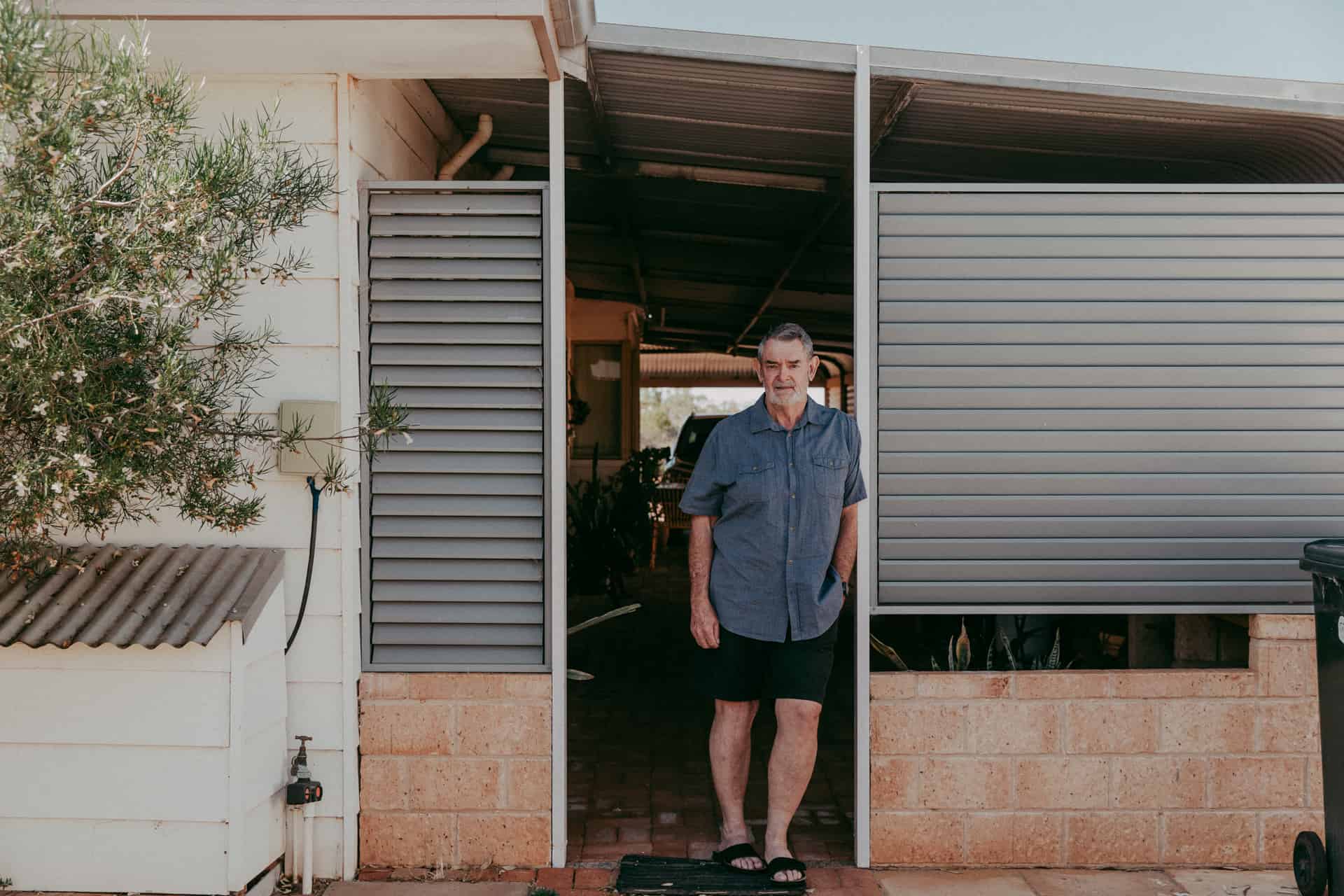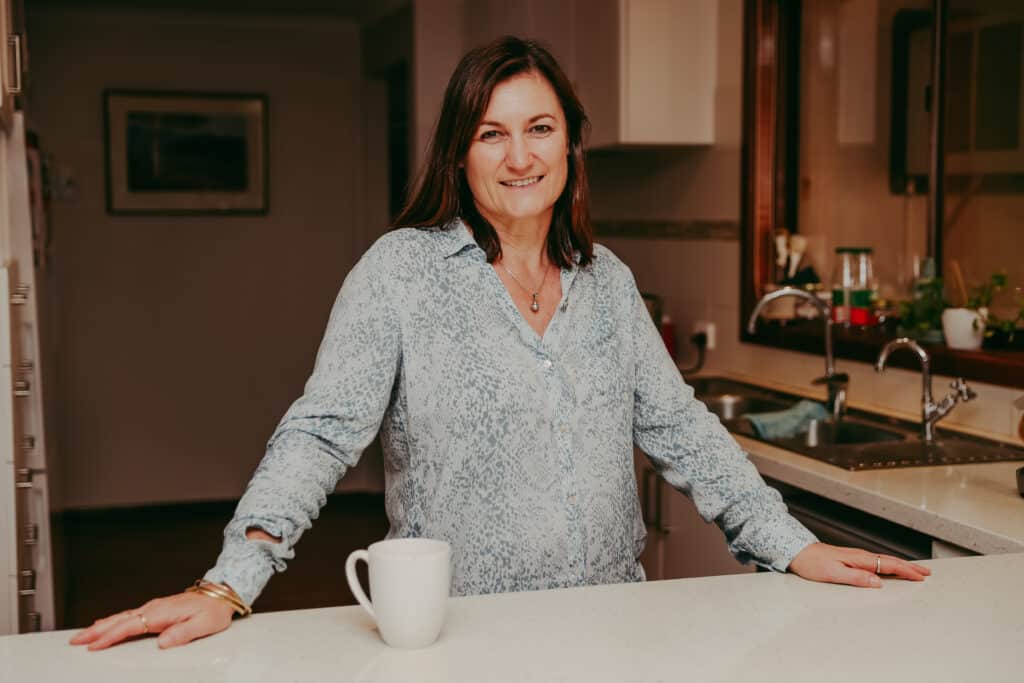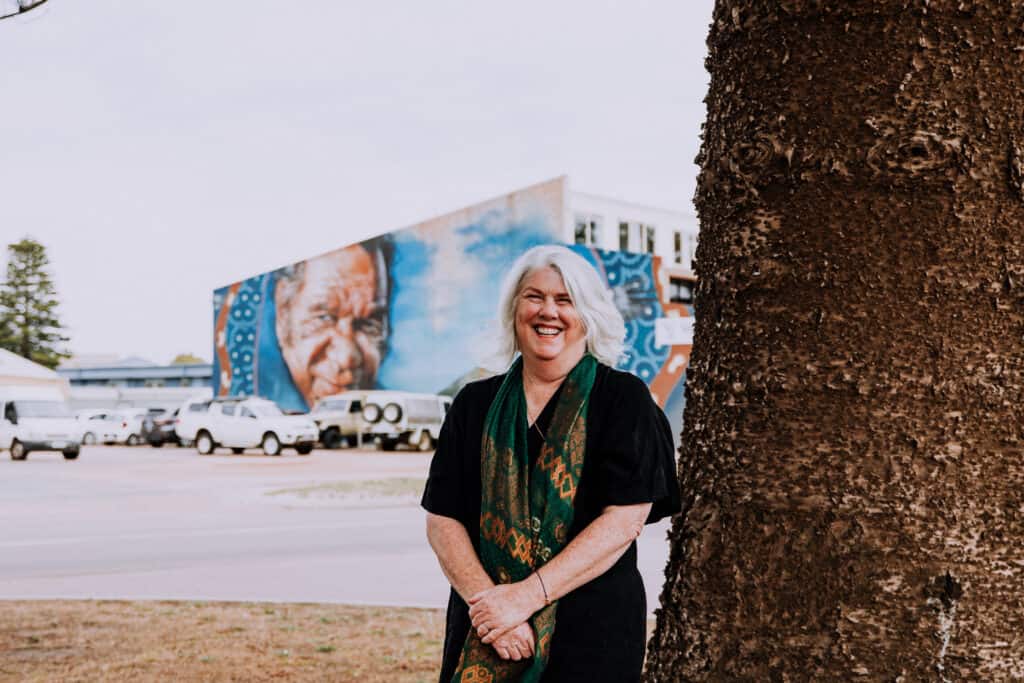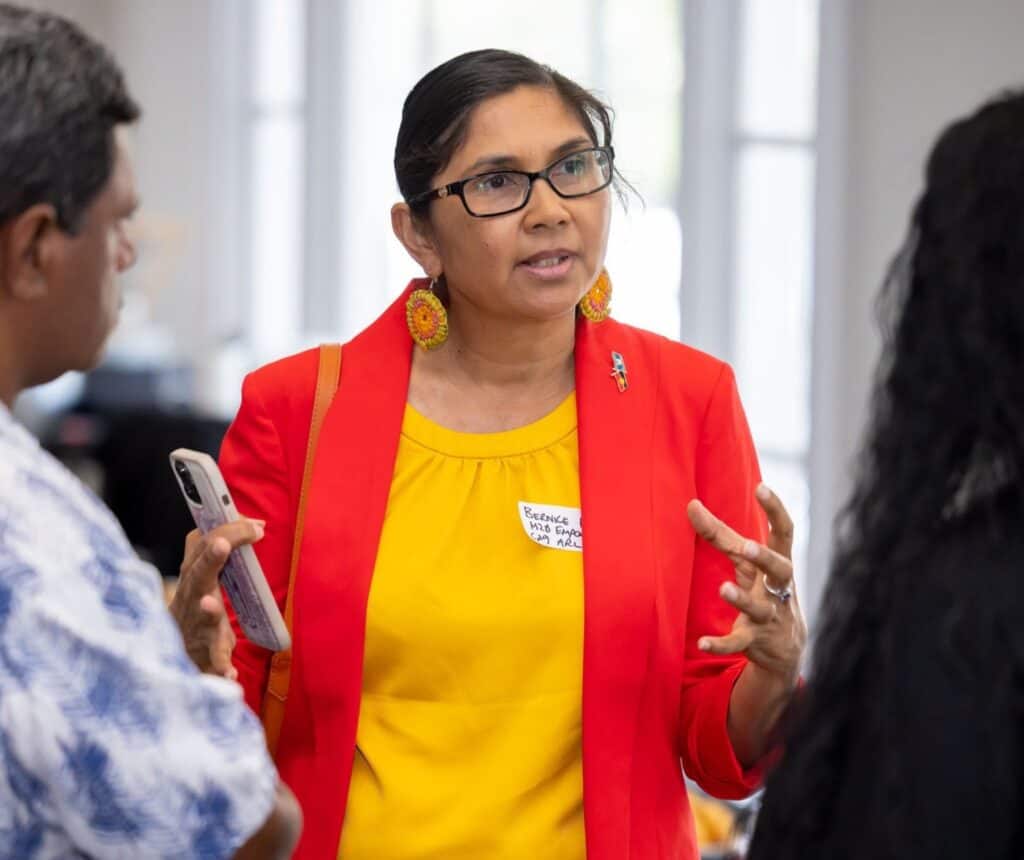In the mid-west region, the Northern wheatbelt of Western Australia good seasons have softened memories of past droughts, events that decimated communities and fractured lives.
But people like Milton Milloy and Julie Freeman are aware that a drought-free future is unlikely, and they are preparing to fight for the wellbeing of their places and those that live in them.
Milton Milroy: Nurturing resilience in the mid-west region
Milton Milloy has firsthand experience with drought: he has seen it fray the fabric of the community he lives in, with farmers abandoning land and townspeople leaving towns that could no longer support them.
“Droughts in the late ‘70s and early ‘80s tested communities. They really changed after two or three droughts in a row,” Milton remembers.
As a youngster during years of hardship, Milton saw struggling farmers bought out by neighbours, and he helped destroy sheep when there was no other option.
But those days are in the past, and he is afraid lessons learned may have faded.
“I am really concerned that the lack of experience with real drought in recent years means survival skills need developing; resilience in the region needs invigorating,” he said.
Milton said better seasons had masked potential for future droughts, yet farmers were operating under stressful conditions, with huge debt loads and expectations, coupled with geographical isolation.
Decreased sheep numbers in the area had compromised resilience and economic diversity, resulting in fewer employment opportunities.
But it is how people are dealing with their own health that particularly concerns Milton.
“We need to take a different approach for the health of individuals and the community: there are still barriers to talking about health, especially mental health.
“We need to work on changing how young people in the industry operate…I ask them if they know what their wife has for breakfast: if they don’t, they need to spend more time with their family,” he said.
Igniting passion and empowering leadership
Milton says he always fully commits to the things he does.
“My footy teams play like I coach…I have a sense of self-belief and don’t think it’s worth doing something if you are not passionate about it,” he said.
He has harnessed that passion in his work with the community, engaging in activities such as football involvement, volunteering, and working for non-profit organisations, and currently serving as the Mission Australia Midwest Gascoyne area manager. His workplace is vast, including the Gascoyne, Carnarvon and Meekatharra areas, his home country of Morawa, pastoral country, and horticultural enterprises.
Participation in the Australian Rural Leadership Foundation (ARLF) Drought Resilience Leaders Development Program (DRLDP), a Federal Government funded initiative that is part of the Future Drought Fund project, provided Milton with a boost to existing leadership skills.
“It trained me to be a driver, to make changes to my leadership style and encouraged me to do what I do better, and be better received as a leader,” Milton said. He said that the focus on use of storytelling was important, and a strategy which provided for connection with community members, using an understanding of younger generations to help them develop their skills and leadership qualities.
Empowering teams and amplifying voices
Learning from the program led to changes in the way he works at Mission Australia, an organisation whose core business includes dealing with issues like homelessness and domestic violence.
“I have reestablished a whole team, but rather than using my ideas and doing what I think should be done, I listened to the team members, supported them and where they saw a problem, tried to fix it,” Milton said.
“This program has enabled me to be the best leader I can be in my work life, being able to tell the story to staff and stakeholders when explaining ideas and concepts,” Milton said.
“It opened my eyes to the thoughts and ideas of so many young people in the room and hearing about the work they are already doing in their communities was invigorating and uplifting,” Milton said.
“It improved my ability to stop and listen, there are so many smart forward thinking young people in our community, for me the task now is to give them direction to grow their ideas and build the capacity of our rural communities.”
“It all comes back to use of storytelling as an essential leadership skill…not the do what I say approach, more of a this is why I do what I do…maybe it will work for you?” Milton said.
“Telling the story creates understanding.”
Julie Freeman: Seeking growth and meaningful contribution
Julie Freeman was at a personal crossroads, asking the big ‘what’s next’ question, when an email dropped into her inbox, reminding her that the program application deadline was 24 hours away.
Married to a third generation Mullewa farmer, Julie helped build their farming business, Redbrae Farms and had served on every community group in Mullewa.
“I had arrived at a place where I thought I had learned all I could learn and given all I could give…I needed to grow and give more,” she said.
Her involvement in community groups increased when she gave up her role in education, having taught at schools in the mid-west for 16 years: she had a bucket-load of skills, ready for use, but was struggling to find a truly productive way to use them.
As someone with years of community involvement behind her, she was lacking focus and at a bit of a loss. The reminder email was timely.
Julie said she had no expectations about the training and was slightly skeptical.
“I was worried the DRLDP might be just another self-help, personal development program, but I was wrong. It was gutsy. It was about how we make change…the presentations were evidence based, best practice and the information provided, the quality of the content and presenters were fantastic.”
Building connections and fostering collaborative solutions
Julie said the program brought together a people from across WA’s northern agricultural region, from Northampton to Binnu.
“There were differences but also enormous similarities, and the program enabled recognition of what we have in common, and a shared understanding,” she said.
Julie said the program encouraged participants to take a good look at how to manage change in communities, shifting the focus from what is lost during the process to what is retained and gained.
“What do we need to let go of: what have we got that is good already, how do we grow that, changing the process and leadership in that context in the community,” Julie said.
Julie said that rural Western Australia was in a perpetual state of change, with global trends, climate change, urbanization, and digitization among the influencing forces.
“We need to embrace the forces causing change, use them to our advantage, while working to change the system at a deeper level to tackle those things that are creating problems in the first place,” Julie said.
Julie said that the program encouraged analysis of problems and envisaging of transformation scenarios: imagining what an outcome would be with a strong community and good governance.
She said that the program cohort was one of its greatest strengths.
“It involved a variety of people, with different skills, involved in communities in some form or another, regenerative ag, local government and growers: an enormous range of people, all involved and wanting our region to be a wonderful place, regardless of drought,” she said.
“There were people whose names I knew but had not met, and we made connections.”
Those connections had already borne fruit, with a group of program graduates now working with Regional Development Australia as a reference group for planning in hinterland of Geraldton.
Empowered to make a difference
And, closer to home, Julie said that the program gave her courage, and language skills that enable her to effectively communicate concern when a local community park was at risk of closure by the City of Geraldton.
With her new skills set, Julie is keen to work on a strategic plan for her community, to help it navigate the next 15-20 years, drought, or no drought.
Both Milton and Julie can see that the skills and knowledge they acquired during the program will help them in their efforts to develop human capital in the mid-west, so that when challenging times do hit, their region is well equipped to survive and thrive until the next decent opening rains.
Preparing communities for drought is, they believe, as much about strengthening human capital as it is about ensuring there is access to water and feed for stock.
Milton and Julie agree that good leadership and governance bring people and places together, enabling them to proactively address threats to health, education, and connectivity. They believe that such communities are better equipped to tackle future droughts.










